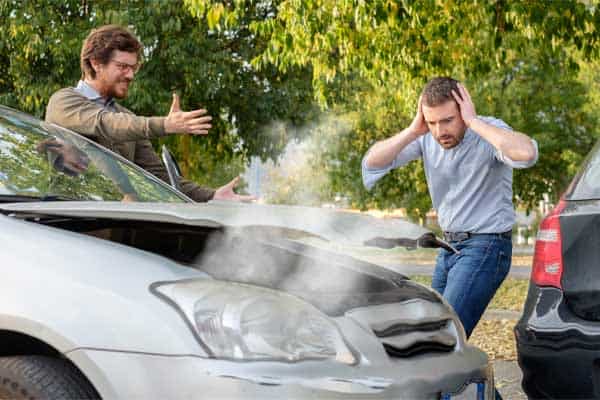When you get into an accident where you or your loved one has been injured or has incurred damage to your vehicle you want to understand who is at fault. When you are asking who is at fault in Georgia car accidents? You should note that Georgia is an at-fault state. This means that drivers have to pay for accidents that are a result of their actions when they have been proven to be negligible. For this reason, it is important to understand who is liable for the accident.
Even as this is the case it is not an easy task to prove who is at fault even if it may be just one driver at fault. There are insurance companies that will try and place the blame for the accident on the other driver so they don’t have to pay the amount being claimed.
In order for a plaintiff to be able to prove that the driver who caused the accident is at fault, there are certain legal requirements according to the Georgia car accident laws that need to be satisfied. These legal requirements will depend on a few facts surrounding the accident.
In order for a person to be able to be held at fault in a motor vehicle accident in Georgia they hey have to meet the requirements below:
- Proof of the existence of a duty of care
- The breach of that duty of care
- Proof that the breach of the duty of care resulted in the accident and the injuries and damages suffered
- That there are actual injuries, losses, or damages suffered
Determining Who is at Fault in Georgia Car Accidents
When it comes to auto insurance claims Georgia is an at-fault state. What this means is that if you get injured as a result of someone’s negligence in an accident you will have 3 options that you can opt for while seeking to be compensated for damages and injuries incurred. You can file a lawsuit in court, file a claim with the responsible party insurance company, or file a claim with your own insurance company.
The state of Georgia follows a fault-based system while with issues concerning liability or insurance coverage as a result of a car accident. The at-fault driver will be liable for any property damage, personal injuries, or/ and losses that are as a result of a car accident. The insurance policy that the driver has will be considered first to cover the liabilities.

There are instances where after filing a lawsuit after you sustain an injury in a car accident the other party or insurance company can respond by claiming that you are the one at fault. They can claim that you are at fault in whole or in part for the collision. This is where Georgia’s comparative laws come in. The modified comparative negligence law will either reduce damages or even eliminate damages if you found to be either fully or partially at fault.
According to the comparative negligence law in Georgia, if an individual is more than fifty percent liable for damages they cannot file a lawsuit. However, even if they are forty-nine percent liable for causing the accident they can still receive compensation. Insurance companies analyze police results and they can hire a variety of experts to go over every detail.
The Georgia comparative negligence law awards for damages based on the proportion of the percentage the negligent party is responsible for. The aftereffect of this law can have negative effects on individuals who are in dire need of medical bills and vehicle repairs. It is important to face insurance companies with the help of experienced personal injury attorneys.
Is Georgia a No-Fault State or At-Fault State for Car Accidents?
Drivers at a no-fault state who have been involved in a car crash have insurance coverage to cater to their own accident injuries. The insurance company of the negligent party would not be needed to pay damages for any other injured person even if they were at fault.
However, Georgia is an at-fault state. When a collision occurs the police officer who is going to respond most times assigns blames to either one or both of the parties involved in the accident through issuing a citation. In the state of Georgia through proportional comparative fault, the percentage of fault will be assigned in a car accident.
It is important to do that because there are times where the drivers involved in auto accidents were both on the wrong. Proportional comparative fault can prove several things.
- There is a driver who is completely at fault for the accident
- One of the drivers is 90 percent at fault and the other one is 10 percent at fault. The percent at fault can vary depending on the situation
- Both of the drivers are equally responsible for the accident
As a result of Georgia being an at-fault insurance state accident, victims are able to recover compensation for property damages and medical expenses if the other driver is more at fault. You will be able to recover compensation when you file a claim with the insurance company of the at-fault party. The at-fault’s driver insurance company will only be able to pay for damages depending on the limit of the policy coverage the driver has taken.
Who Decides Fault in a Car Accident?
When you file a claim with an insurance claim after an accident you will be assigned an insurance adjuster who will look at your case. The work of the insurance adjuster is to review the basic facts of the accident. After collecting evidence they can then determine who is at fault. Here are some of the things they will rely on to gather their data:
- They will consider a police accident report. The police report is the first piece of evidence that an accident happened.
- The statement of both of the drivers involved as well as any other witnesses
- The car's physical condition. This includes the type of damage and how it was obtained
- The weather condition for that particular day
- Information about the accident scene that is any missing signs, potholes on the road, and other things that they might notice
The information that they collect they will use assign fault and reconstruct what happened.
What to Say to Your Insurance Company
It is your obligation to notify your insurance company even after a minor crash. If you do not follow through with the obligation they can deny your claim and deny you compensation for damages. Even if it a very essential rule that you should not skip while talking to your insurance company you should keep it simple. What you should tell your insurance representative:

- Let them know that there was a crash
- Let them know where the crash happened
- Tell them if you car got damaged in the process
What Not to Say to Your Insurance Company After an Accident
When you say more than you are legally obligated to, you may end up doing more harm than good. You should tell the insurance company the truth. However, there are things that you will tell the insurance company that can result in your case being undermined and you may end up reducing the coverage that you should receive.
Here are some of the things not to say to an insurance company:
- Downplaying how badly you were injured
- Talking too much about what you think happened and it ends up being conflicting
- Admitting that you were responsible for the accident
After the fault is determined you should work with a car accident attorney or a personal injury legal team so you can get fair compensation for your case after a collision. You can talk to our Accident lawyers about your civil lawsuit.
